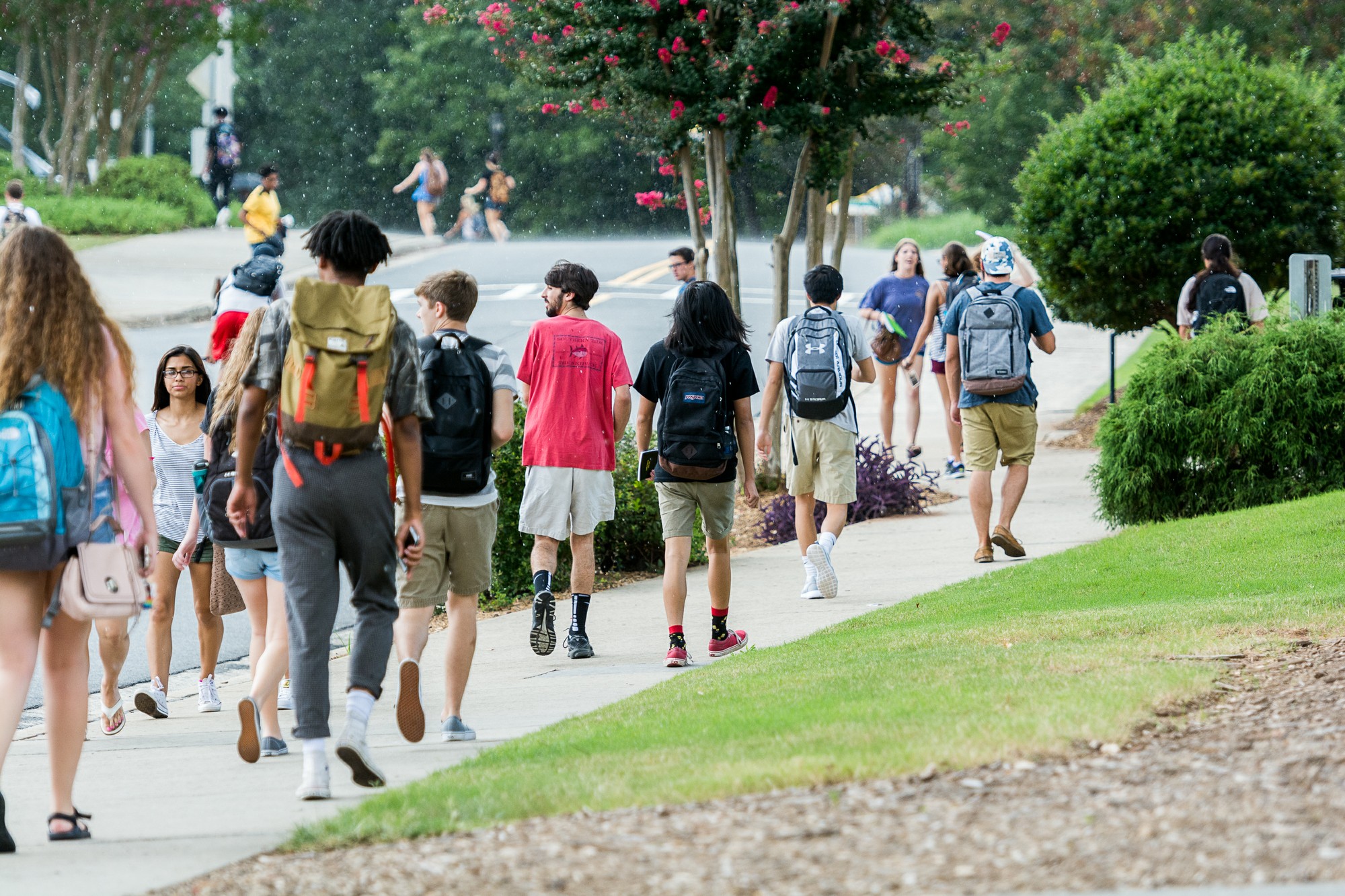The Georgia Budget and Policy Institution released a policy report Sept. 29 making the case that undocumented immigrants protected by the Deferred Action for Childhood Arrivals (DACA) policy should receive in-state tuition to public colleges and universities in Georgia.
The policy, written by Melissa Johnson is entitled “Georgia’s Workforce Development, Economy Damaged by Barriers to Higher Education for Undocumented Students.” Johnson states that allowing in-state tuition to undocumented students will create a diverse workforce in Georgia. She also says it will increase the amount of college graduates.
“We run the risk, a very strong risk, of having less diverse, less skilled workers by not putting this policy in effect,” Johnson said.
DACA allows undocumented immigrants access to education and jobs without fear of being deported for a period of two years if the individual was brought to America before the age of 16 and has no criminal records. It can then be renewed after this period.
If the undocumented immigrants receive in-state tuition in Georgia, it could also mean bringing diversity into colleges as well as the workforce.
“They have different cultures, and a lot of the time they are still holdfast to their cultures,” Michelle Miller, the Exchange Coordinator at KSU, said. “I think that would bring diversity into the classrooms.”
Miller also noted that the exchange students that come to KSU from other countries receive in-state tuition when they come using a J-1 visa, while Georgia does not offer undocumented immigrants any federal financial aid.
The report also states that Georgia will be more likely to reach their goal of having 250,000 additional college graduates by 2020 if this policy is installed. This goal was created by Gov. Nathan Deal who believes we need more graduates to fulfill the workforce need.
By having more college graduates, Georgia will not only have an increased workforce, but also more educated residents. Nancy Seifried, a senior at KSU majoring in biology, believes that for this reason, allowing undocumented immigrants in-state tuition may be beneficial to Kennesaw.
“It’s been proven time and time again that those societies that have a higher educated populous have a safer populus,” Seifried said. “So why wouldn’t you want everyone in your society educated?”
As of now, college is out of reach for the majority of undocumented immigrants, because 66 percent of the undocumented immigrants are low-income families. This makes it extremely difficult for them to afford out-of-state tuition. Out-of-state tuition can be up to three times more expensive than in-state tuition.
The support and predictions of how in-state tuition given to undocumented immigrants could affect Kennesaw State University seems to be the same among faculty members and students of KSU. They believe the enrollment rates and population will increase, a situation KSU will hopefully be able to accommodate. They also believe that the demographics will change, creating a more diverse atmosphere at KSU. As for tuition prices, they are set by the Board of Regents of the University System of Georgia who have declined to comment on this issue.
Johnson states, however, that the cost to universities and the state of Georgia is not something to be worried about.
“The cost is pretty minimal. You’re talking about adding some more students to the roll.” Johnson said. “What they’re bringing to the table is the validity to pay in-state tuition in some cases and the ability to pay more into our tax system through high earnings once they graduate.”
Despite this support, some oppose in-state tuition for undocumented immigrants because they believe that Georgia should not reward the undocumented immigrants who have arrived and reside here illegally.
Even Julio Espana, the Director of Global Admissions, has a hard time choosing sides on this matter. As a first generation immigrant and legal citizen, he is able to understand both perspectives.
“It’s hard to take a side. I believe in education and we should be supportive of everyone,” Espana said. “But, having said that, I think they should go by the law, follow the rules and then be able to have in-state tuition.”
Johnson points out that it should not be approached in this manner.
“The DACA students are students who were brought here by no fault of their own,” Johnson said. “They are not lawbreakers in that sense.”
Rigoberto Rivera, a DACA student, is just one of the many individuals who fits this profile. Riviera was brought to the United States at the age of 9 and has lived in Georgia ever since. He has graduated high school, but now finds it difficult to complete his college education due to high costs he is forced to pay.
“Since 2010 the State of Georgia has been discriminating against undocumented students by passing laws and enacting policies which prohibit undocumented students from attending the top 5 universities in the state, from receiving any type of financial aid, and in-state tuition.” Rivera said.
As for the policy report written by Johnson, she hopes it will spark some significant debate in the upcoming discussions and will put into effect by lawmakers within the next couple of years.


